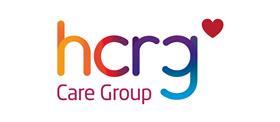Richard Comerford discusses how partnerships offers trusts an opportunity to cut waiting times and deliver better outcomes in child and adolescent mental health services
Covid-19 had a damaging impact on the wellbeing of children and young people, with NHS research indicating that around one in six children in 2021 had a “probable mental health disorder” – up from one in nine in 2017. With demand increasing faster than funding, North East London Foundation Trust have partnered with an independent provider as part of a new plan to reduce waiting times, improve early support, and deliver improved outcomes.
Sponsored by
Launched in April this year, the new service is based on the THRIVE framework. HCRG Care Group, the national independent community health and care provider which specialises in transforming and turning around services through workforce, are responsible for the “getting help” element of the framework while NELFT continue to deliver higher levels of support.
This split allows NELFT to focus their specialist clinical resource on those with the most serious needs, while an adaptable skill-mixed team of emotional wellbeing coaches and practitioners from HCRG Care Group provides goal-based support services including cognitive behaviour therapy and guided self-help for children experiencing low level anxiety, low mood, and behaviour issues.
The partnership approach means faster access to early help, dealing with potential issues earlier, improving outcomes, and reducing future demand on higher level support services; the service has already begun to record fewer young people waiting more than 18 weeks for support.
The flexible early help offer is delivered at a time and venue in the community that suits the child or young person. The team are empowered to invest time in each young person, helping them to improve their own wellbeing and resilience, even working through a bedroom door and helping others tell their story through therapeutic song writing.
By developing safe and positive relationships with young people and their support networks, the early support equips them with the tools and strategies they need to stay well and out of the mental health system in the future. And, as well as being able to offer support more quickly, the service is well rated too – 100 per cent of people rating the service say they’d recommend it to someone else in a similar situation.
And with a true partnership in place, professionals from both organisations work together as part of a single team – so when and if someone needs more help, or no longer needs specialist care, the care they get can seamlessly adapt.
Gill Burns, NELFT children’s services director, said: “NELFT are pleased to have formed a formal partnership with HCRG Care Group in Essex. The partnership provides a jointly developed clinical model based on the THRIVE principles. Both NELFT and HCRG Care Group have committed to ensuring the success of the partnership, with both organisations offering specific elements of the THRIVE offer to ensure an appropriate range of clinical interventions are available at the earliest opportunity for the children, young people and families in Essex.”
HCRG Care Group’s Zoe Oddy, who was heavily involved in setting up the new service, said: “Across the UK, CAMHS waiting times continue to rise and, naturally, the focus is often on supporting those most at risk. In many places, this has led to challenges in accessing support for children with less complex needs.
“By partnering with us, NELFT can target their vital clinical resources most effectively, while simultaneously ensuring early intervention and prevention services are getting to those who need them in a timely way. And the feedback speaks for itself - one parent commented that the CBT based anxiety and low mood group was ‘the most helpful thing’ their child had ever done.
“We’ve been working across England and partnering with the NHS for more than 15 years, and we’re keen to talk to other trusts about how partnerships like these can deliver early intervention, reduce waits and overall reduce costs and demand by making a long-term difference to the lives of children, young people and their families.”

























